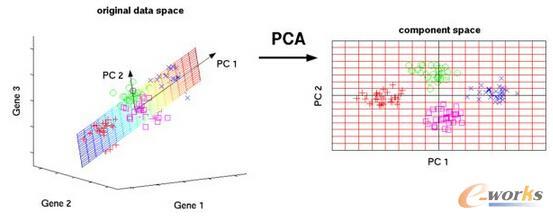We propose a new method for statistical inference in generalized linear models. In the overparameterized regime, Principal Component Regression (PCR) reduces variance by projecting high-dimensional data to a low-dimensional principal subspace before fitting. However, PCR incurs truncation bias whenever the true regression vector has mass outside the retained principal components (PC). To mitigate the bias, we propose Calibrated Principal Component Regression (CPCR), which first learns a low-variance prior in the PC subspace and then calibrates the model in the original feature space via a centered Tikhonov step. CPCR leverages cross-fitting and controls the truncation bias by softening PCR's hard cutoff. Theoretically, we calculate the out-of-sample risk in the random matrix regime, which shows that CPCR outperforms standard PCR when the regression signal has non-negligible components in low-variance directions. Empirically, CPCR consistently improves prediction across multiple overparameterized problems. The results highlight CPCR's stability and flexibility in modern overparameterized settings.
翻译:暂无翻译




